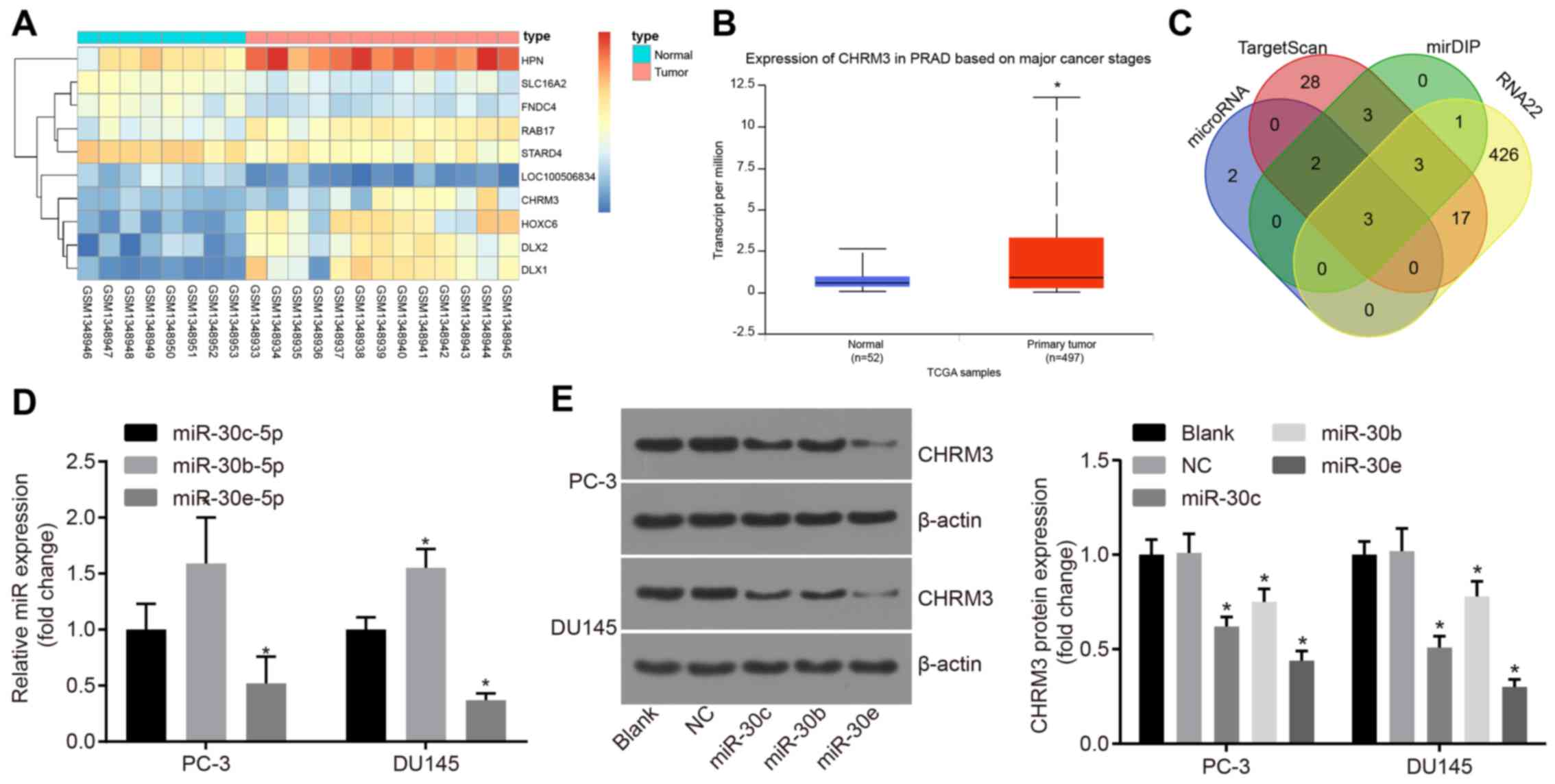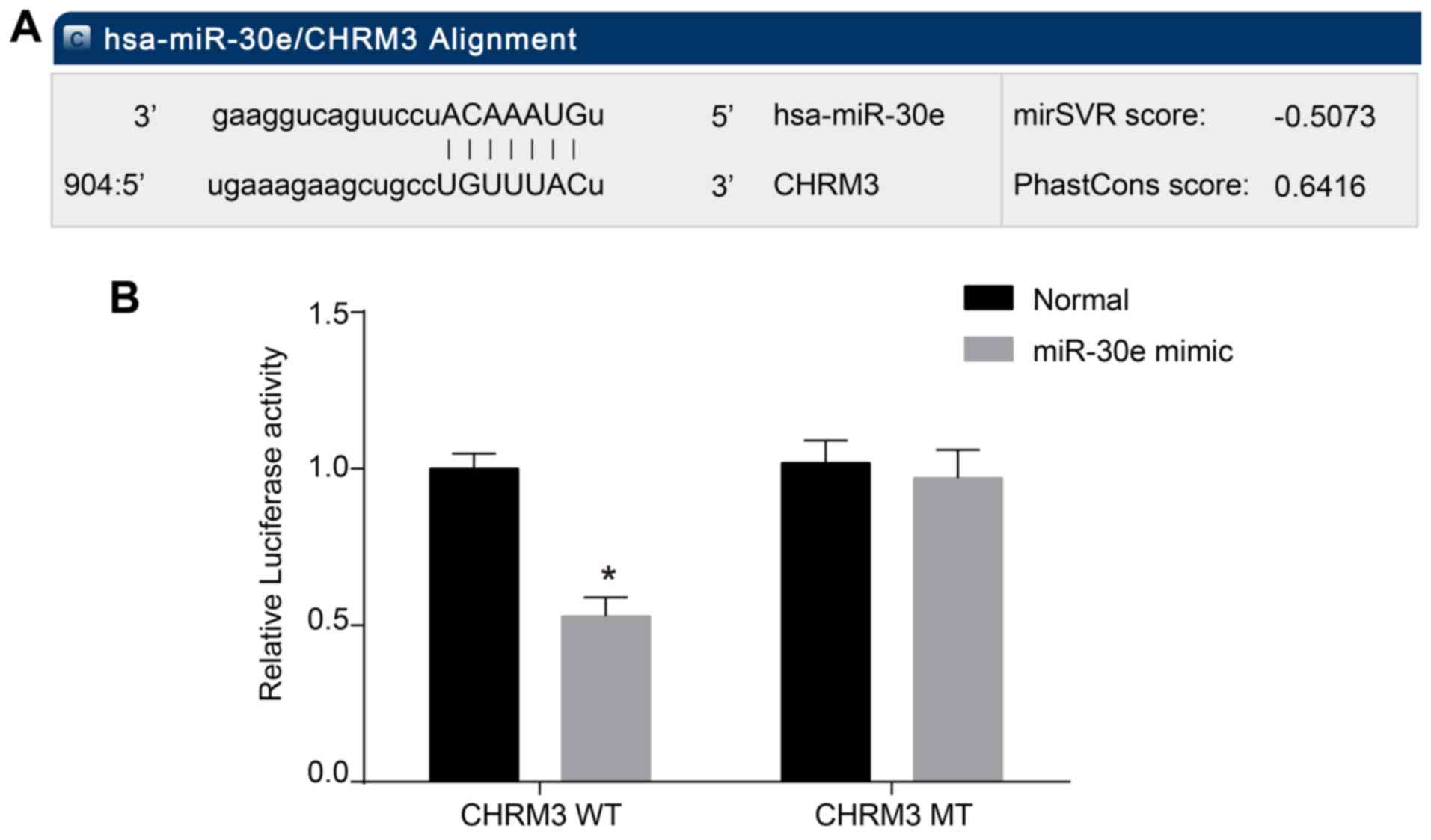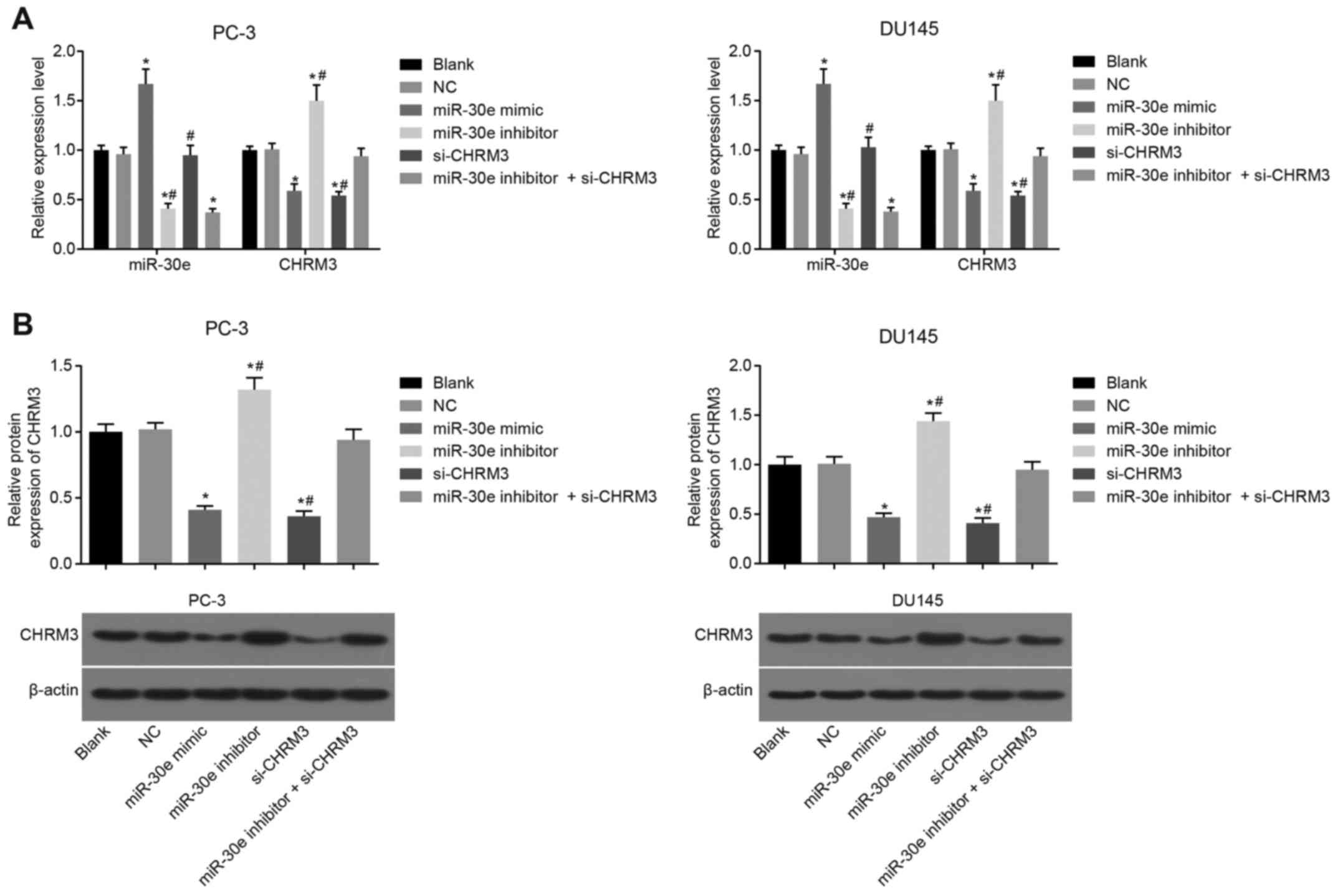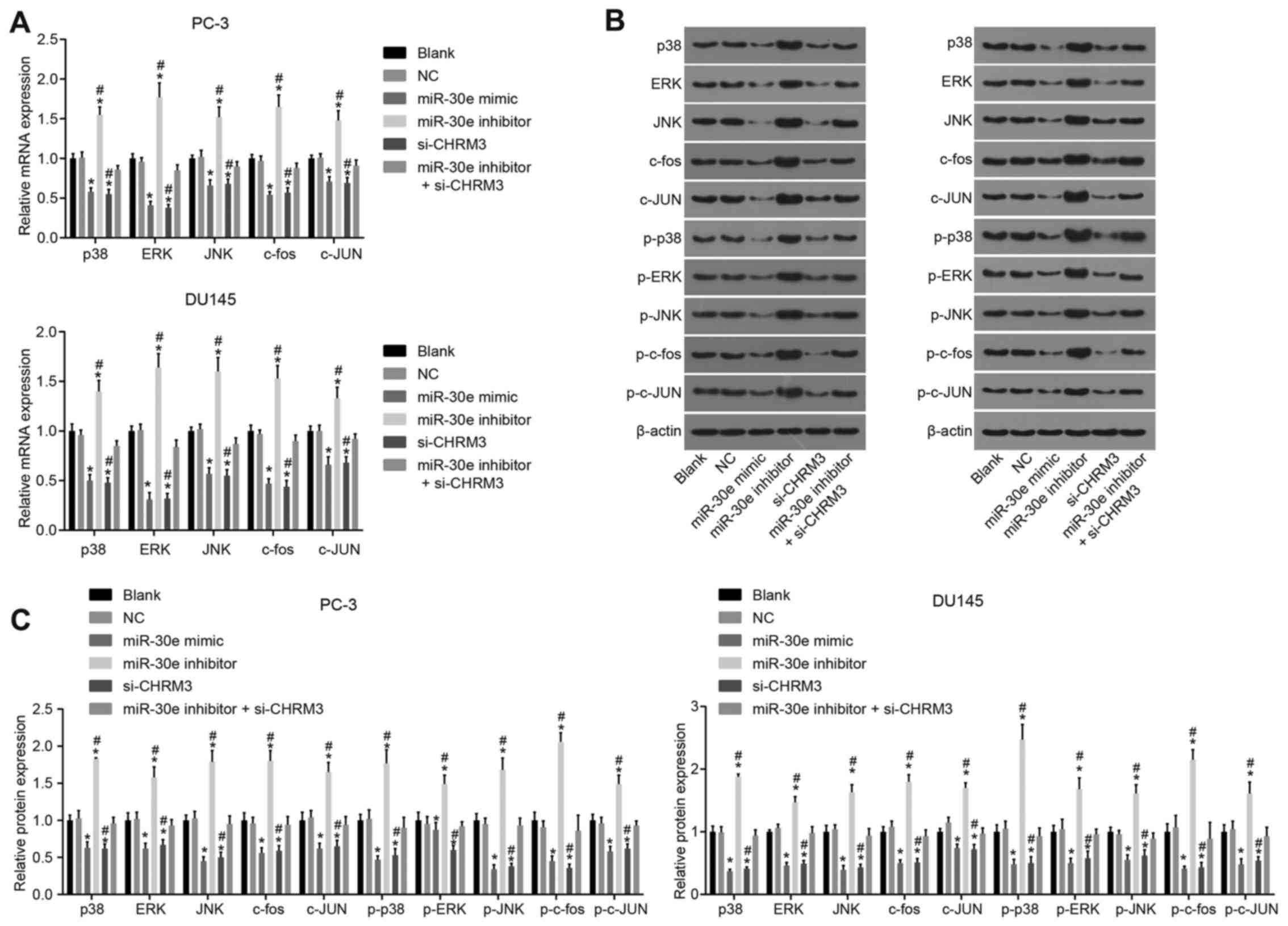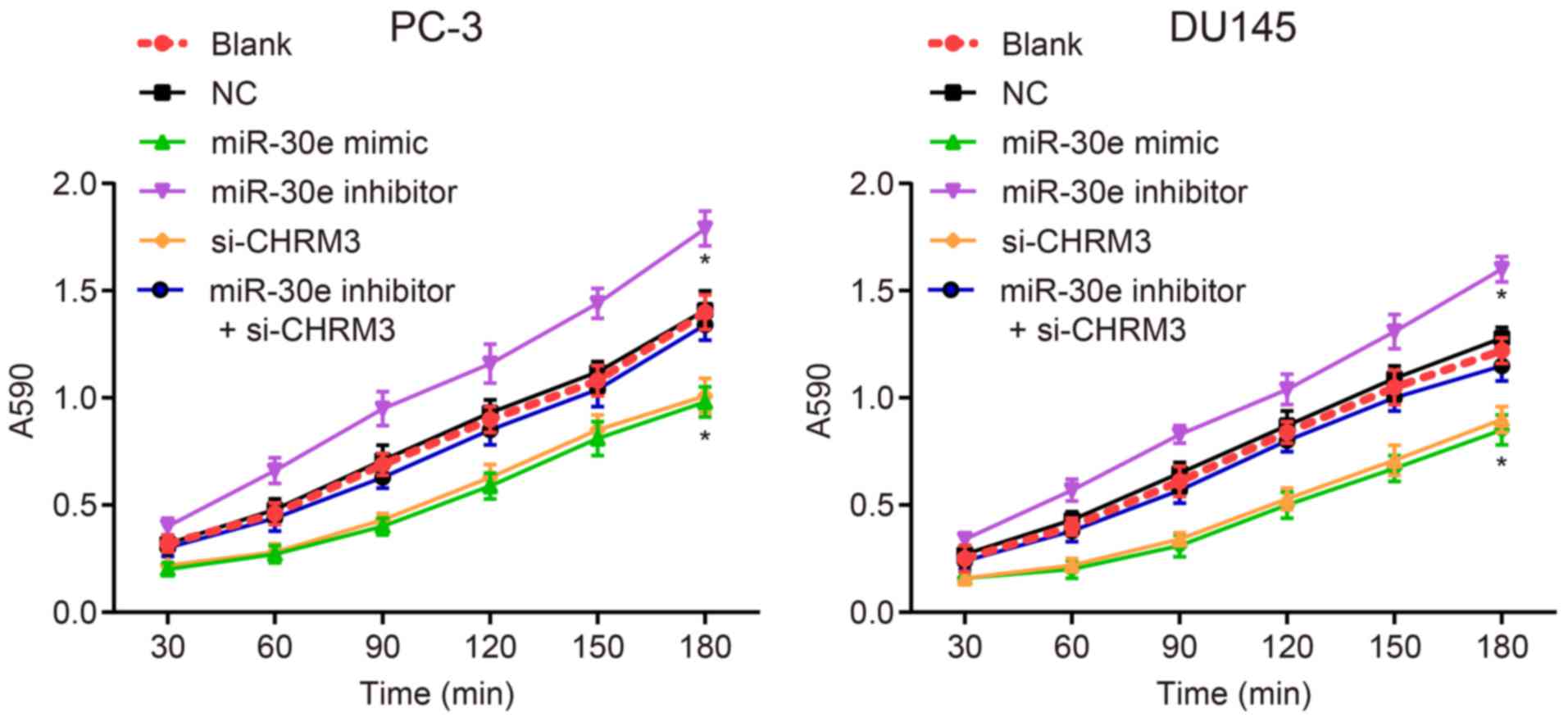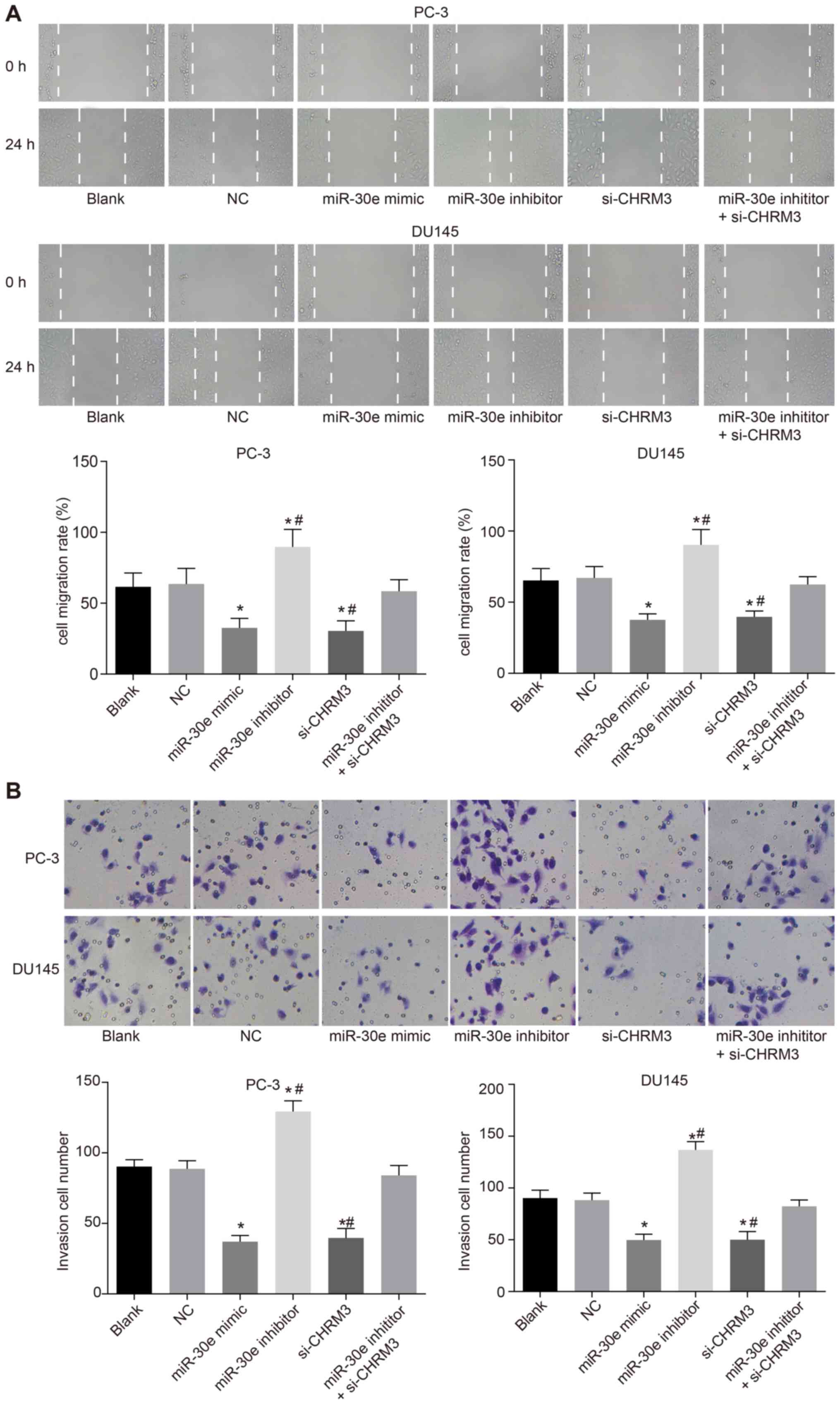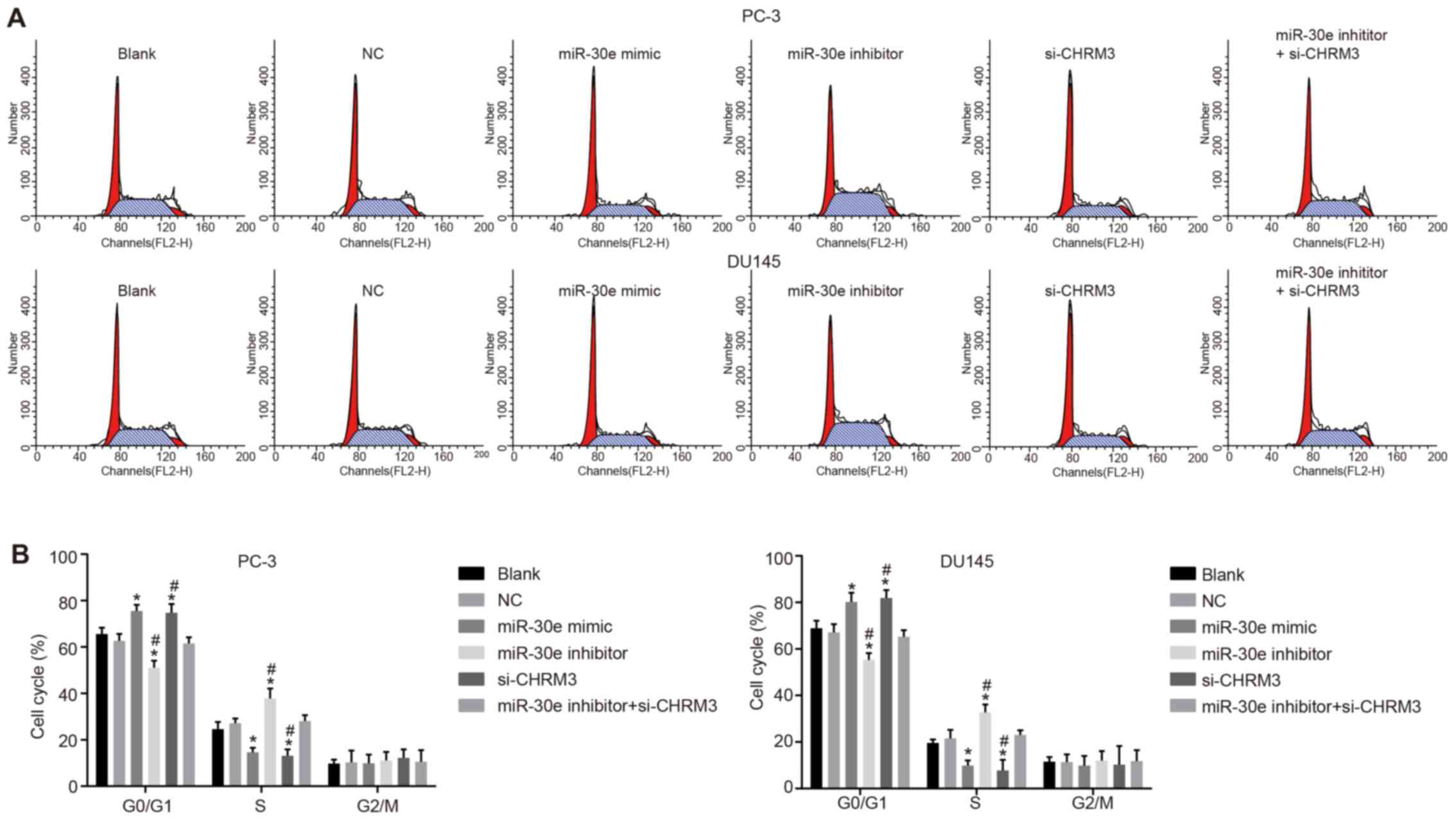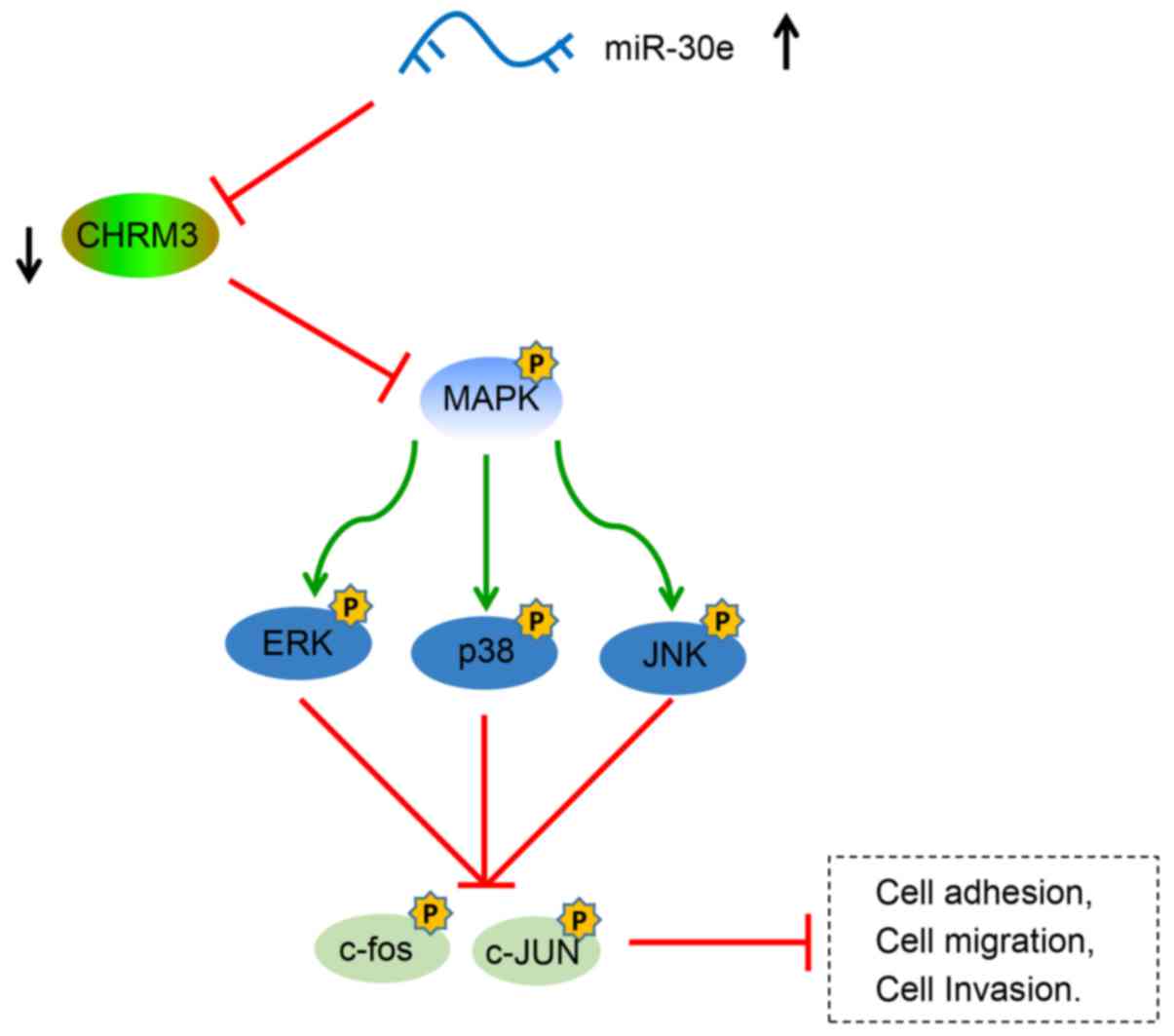|
1
|
Quinn DI, Shore ND, Egawa S, Gerritsen WR
and Fizazi K: Immunotherapy for castration-resistant prostate
cancer: Progress and new paradigms. Urol Oncol. 33:245–260. 2015.
View Article : Google Scholar
|
|
2
|
Taylor BS, Schultz N, Hieronymus H,
Gopalan A, Xiao Y, Carver BS, Arora VK, Kaushik P, Cerami E, Reva
B, et al: Integrative genomic profiling of human prostate cancer.
Cancer Cell. 18:11–22. 2010. View Article : Google Scholar
|
|
3
|
Mahn R, Heukamp LC, Rogenhofer S, von
Ruecker A, Muller SC and Ellinger J: Circulating microRNAs (miRNA)
in serum of patients with prostate cancer. Urology. 77(1265):
e1269–1216. 2011. View Article : Google Scholar
|
|
4
|
Wen X, Deng FM and Wang J: MicroRNAs as
predictive biomarkers and therapeutic targets in prostate cancer.
Am J Clin Exp Urol. 2:219–230. 2014.
|
|
5
|
Lynch SM, McKenna MM, Walsh CP and McKenna
DJ: miR-24 regulates CDKN1B/p27 expression in prostate cancer.
Prostate. 76:637–648. 2016. View Article : Google Scholar
|
|
6
|
Egan SM, Karasik E, Ellis L and Gollnick
SO: miR-30e* is overexpressed in prostate cancer and promotes
NF-κB-mediated proliferation and tumor growth. Oncotarget.
8:67626–67638. 2017. View Article : Google Scholar
|
|
7
|
Wang N, Yao M, Xu J, Quan Y, Zhang K, Yang
R and Gao WQ: Autocrine activation of CHRM3 promotes prostate
cancer growth and castration resistance via CaM/CaMKK-mediated
phosphorylation of Akt. Clin Cancer Res. 21:4676–4685. 2015.
View Article : Google Scholar
|
|
8
|
Ling MT, Wang X, Ouyang XS, Lee TK, Fan
TY, Xu K, Tsao SW and Wong YC: Activation of MAPK signaling pathway
is essential for Id-1 induced serum independent prostate cancer
cell growth. Oncogene. 21:8498–8505. 2002. View Article : Google Scholar
|
|
9
|
Aghaee-Bakhtiari SH, Arefian E, Naderi M,
Noorbakhsh F, Nodouzi V, Asgari M, Fard-Esfahani P, Mahdian R and
Soleimani M: MAPK and JAK/STAT pathways targeted by miR-23a and
miR-23b in prostate cancer: Computational and in vitro approaches.
Tumour Biol. 36:4203–4212. 2015. View Article : Google Scholar
|
|
10
|
Pértega-Gomes N, Vizcaíno JR,
Miranda-Gonçalves V, Pinheiro C, Silva J, Pereira H, Monteiro P,
Henrique RM, Reis RM, Lopes C, et al: Monocarboxylate transporter 4
(MCT4) and CD147 overexpression is associated with poor prognosis
in prostate cancer. BMC Cancer. 11:3122011. View Article : Google Scholar
|
|
11
|
Wu Q and Parry G: Hepsin and prostate
cancer. Front Biosci. 12:5052–5059. 2007. View Article : Google Scholar
|
|
12
|
Dhanasekaran SM, Barrette TR, Ghosh D,
Shah R, Varambally S, Kurachi K, Pienta KJ, Rubin MA and Chinnaiyan
AM: Delineation of prognostic biomarkers in prostate cancer.
Nature. 412:822–826. 2001. View
Article : Google Scholar
|
|
13
|
Magee JA, Araki T, Patil S, Ehrig T, True
L, Humphrey PA, Catalona WJ, Watson MA and Milbrandt J: Expression
profiling reveals hepsin overexpression in prostate cancer. Cancer
Res. 61:5692–5696. 2001.
|
|
14
|
Kelly KA, Setlur SR, Ross R, Anbazhagan R,
Waterman P, Rubin MA and Weissleder R: Detection of early prostate
cancer using a hepsin-targeted imaging agent. Cancer Res.
68:2286–2291. 2008. View Article : Google Scholar
|
|
15
|
Mannan Baig A, Khan NA, Effendi V, Rana Z,
Ahmad HR and Abbas F: Differential receptor dependencies:
Expression and significance of muscarinic M1 receptors in the
biology of prostate cancer. Anticancer Drugs. 28:75–87. 2017.
View Article : Google Scholar
|
|
16
|
Guo L, Liu Y, Ding Z, Sun W and Yuan M:
Signal transduction by M3 muscarinic acetylcholine receptor in
prostate cancer. Oncol Lett. 11:385–392. 2016. View Article : Google Scholar : PubMed/NCBI
|
|
17
|
Petersdorf RG: A matter of integrity. Acad
Med. 64:119–123. 1989. View Article : Google Scholar
|
|
18
|
Caromile LA and Shapiro LH: PSMA redirects
MAPK to PI3K-AKT signaling to promote prostate cancer progression.
Mol Cell Oncol. 4:e13211682017. View Article : Google Scholar
|
|
19
|
Sun P, Sun X, Zhao W, Ren M, Zhang C, Wang
Z and Xu W: Lemur tyrosine kinase-3 suppresses growth of prostate
cancer via the AKT and MAPK signaling pathways. Cell Physiol
Biochem. 42:2582–2592. 2017. View Article : Google Scholar : PubMed/NCBI
|
|
20
|
Zhang J, Wang X, Wang Y, Peng R, Lin Z,
Wang Y, Hu B, Wang J and Shi G: Low expression of microRNA-30c
promotes prostate cancer cells invasion involved in downregulation
of KRAS protein. Oncol Lett. 14:363–368. 2017. View Article : Google Scholar
|
|
21
|
Wang J, Paris PL, Chen J, Ngo V, Yao H,
Frazier ML, Killary AM, Liu CG, Liang H, Mathy C, et al: Next
generation sequencing of pancreatic cyst fluid microRNAs from low
grade-benign and high grade-invasive lesions. Cancer Lett.
356:404–409. 2015. View Article : Google Scholar
|
|
22
|
Xu G, Cai J, Wang L, Jiang L, Huang J, Hu
R and Ding F: MicroRNA-30e5p suppresses non-small cell lung cancer
tumorigenesis by regulating USP22-mediated Sirt1/JAK/STAT3
signaling. Exp Cell Res. 362:268–278. 2018. View Article : Google Scholar
|
|
23
|
Liu MM, Li Z, Han XD, Shi JH, Tu DY, Song
W, Zhang J, Qiu XL, Ren Y and Zhen LL: MiR-30e inhibits tumor
growth and chemoresistance via targeting IRS1 in breast cancer. Sci
Rep. 7:159292017. View Article : Google Scholar :
|
|
24
|
Leão R, Domingos C, Figueiredo A, Hamilton
R, Tabori U and Castelo-Branco P: Cancer stem cells in prostate
cancer: Implications for targeted therapy. Urol Int. 99:125–136.
2017. View Article : Google Scholar
|
|
25
|
Leite KR, Reis ST, Viana N, Morais DR,
Moura CM, Silva IA, Pontes J Jr, Katz B and Srougi M: Controlling
RECK miR21 promotes tumor cell invasion and is related to
biochemical recurrence in prostate cancer. J Cancer. 6:292–301.
2015. View Article : Google Scholar
|
|
26
|
Tang X, Tang X, Gal J, Kyprianou N, Zhu H
and Tang G: Detection of microRNAs in prostate cancer cells by
microRNA array. Methods Mol Biol. 732:69–88. 2011. View Article : Google Scholar
|
|
27
|
Park EC, Kim G, Jung J, Wang K, Lee S,
Jeon SS, Lee ZW, Kim SI, Kim S, Oh YT, et al: Differential
expression of microRNAs in patients with glioblastoma after
concomitant chemoradiotherapy. OMICS. 17:259–268. 2013. View Article : Google Scholar : PubMed/NCBI
|
|
28
|
Qin X, Li C, Guo T, Chen J, Wang HT, Wang
YT, Xiao YS, Li J, Liu P, Liu ZS, et al: Upregulation of DARS2 by
HBV promotes hepatocarcinogenesis through the miR-30e5p/MAPK/NFAT5
pathway. J Exp Clin Cancer Res. 36:1482017. View Article : Google Scholar
|
|
29
|
Kim WT and Kim WJ: MicroRNAs in prostate
cancer. Prostate Int. 1:3–9. 2013. View Article : Google Scholar : PubMed/NCBI
|
|
30
|
Sayed D and Abdellatif M: MicroRNAs in
development and disease. Physiol Rev. 91:827–887. 2011. View Article : Google Scholar
|
|
31
|
Hershkovitz-Rokah O, Modai S,
Pasmanik-Chor M, Toren A, Shomron N, Raanani P, Shpilberg O and
Granot G: MiR-30e induces apoptosis and sensitizes K562 cells to
imatinib treatment via regulation of the BCR-ABL protein. Cancer
Lett. 356:597–605. 2015. View Article : Google Scholar
|
|
32
|
Zhao X, Zhou Y, Chen YU and Yu F: miR-494
inhibits ovarian cancer cell proliferation and promotes apoptosis
by targeting FGFR2. Oncol Lett. 11:4245–4251. 2016. View Article : Google Scholar
|
|
33
|
Wagner EF and Nebreda AR: Signal
integration by JNK and p38 MAPK pathways in cancer development. Nat
Rev Cancer. 9:537–549. 2009. View
Article : Google Scholar : PubMed/NCBI
|
|
34
|
da Silva HB, Amaral EP, Nolasco EL, de
Victo NC, Atique R, Jank CC, Anschau V, Zerbini LF and Correa RG:
Dissecting major signaling pathways throughout the development of
prostate cancer. Prostate Cancer. 2013.920612:2013.
|
|
35
|
Fu X, Shen Y, Wang W and Li X: MiR-30a-5p
ameliorates spinal cord injury-induced inflammatory responses and
oxidative stress by targeting Neurod 1 through MAPK/ERK signalling.
Clin Exp Pharmacol Physiol. 45:68–74. 2018. View Article : Google Scholar
|
|
36
|
Abeshouse A, Ahn J, Akbani R, Ally A, Amin
S, Andry CD, Annala M, Aprikian A, Armenia J, Arora A, et al:
Cancer Genome Atlas Research N: The molecular taxonomy of primary
prostate cancer. Cell. 163:1011–1025. 2015. View Article : Google Scholar
|
|
37
|
Lee OK, Cha HJ, Lee MJ, Lim KM, Jung JW,
Ahn KJ, An IS, An S and Bae S: Implication of microRNA regulation
in para-phenylenediamine-induced cell death and senescence in
normal human hair dermal papilla cells. Mol Med Rep. 12:921–936.
2015. View Article : Google Scholar : PubMed/NCBI
|
|
38
|
Ling XH, Han ZD, Xia D, He HC, Jiang FN,
Lin ZY, Fu X, Deng YH, Dai QS, Cai C, et al: MicroRNA-30c serves as
an independent biochemical recurrence predictor and potential tumor
suppressor for prostate cancer. Mol Biol Rep. 41:2779–2788. 2014.
View Article : Google Scholar
|
|
39
|
Huang YQ, Ling XH, Yuan RQ, Chen ZY, Yang
SB, Huang HX, Zhong WD and Qiu SP: miR-30c suppresses prostate
cancer survival by targeting the ASF/SF2 splicing factor
oncoprotein. Mol Med Rep. 16:2431–2438. 2017. View Article : Google Scholar
|
|
40
|
Yang Q, Sun M, Chen Y, Lu Y, Ye Y, Song H,
Xu X, Shi S and Wang J: Triptolide protects podocytes from
TGF-β-induced injury by preventing miR-30 downregulation. Am J
Transl Res. 9:5150–5159. 2017.
|















